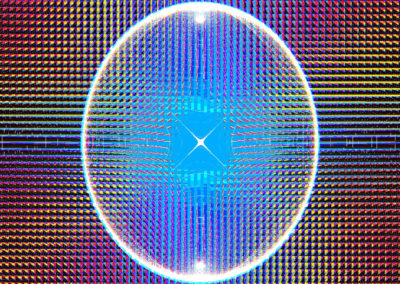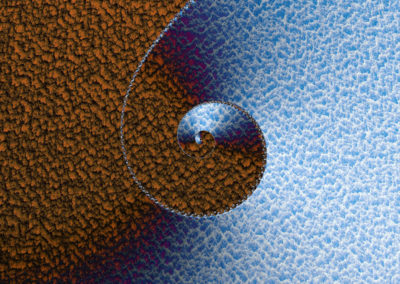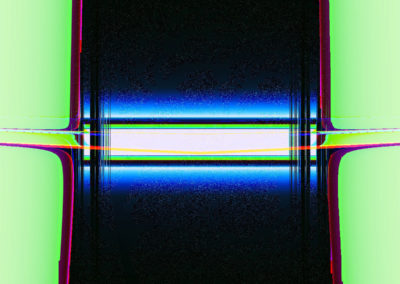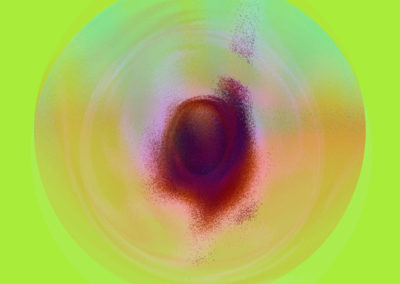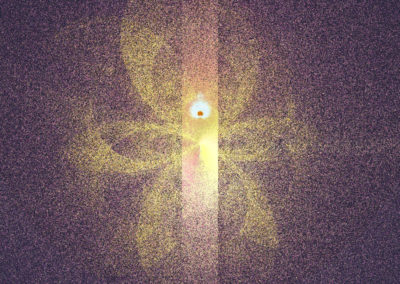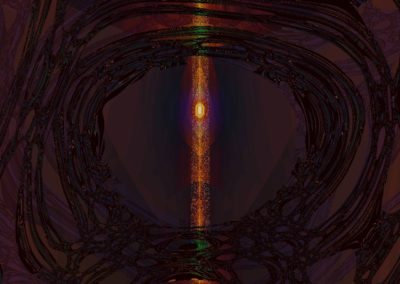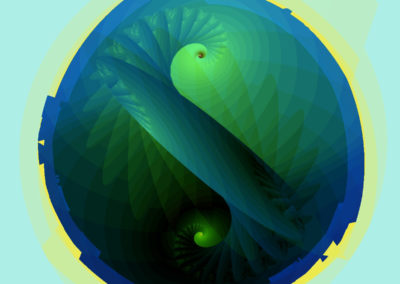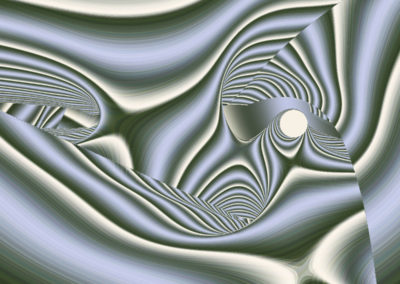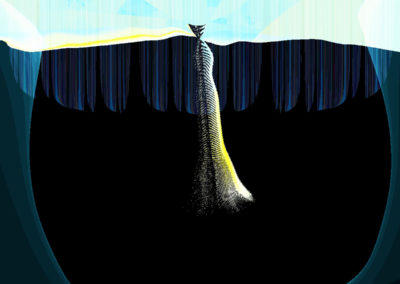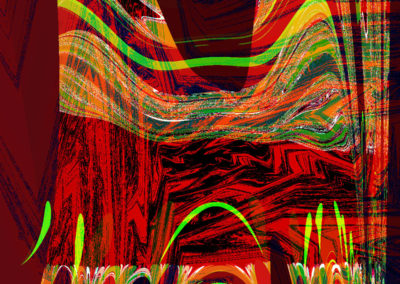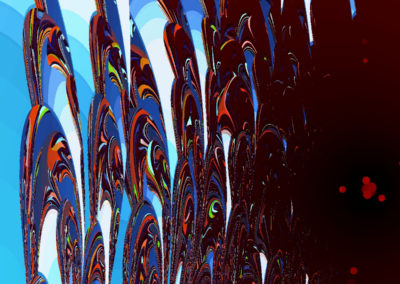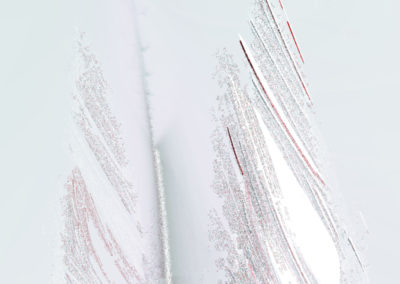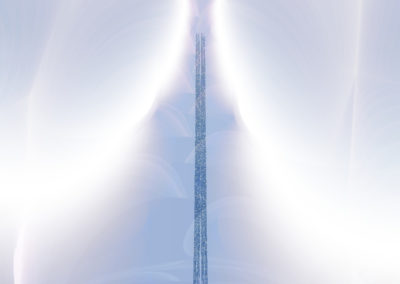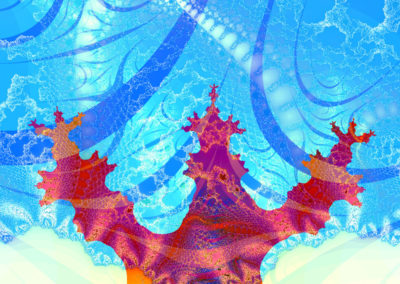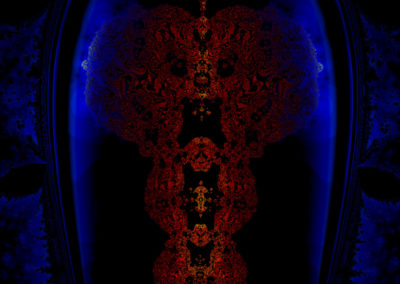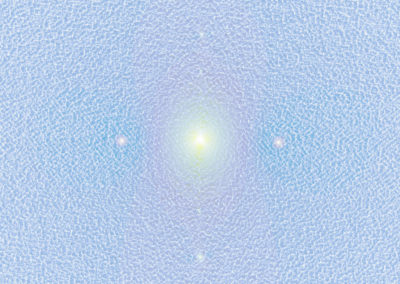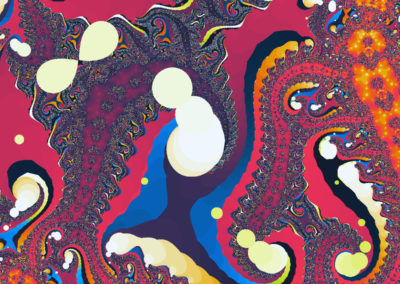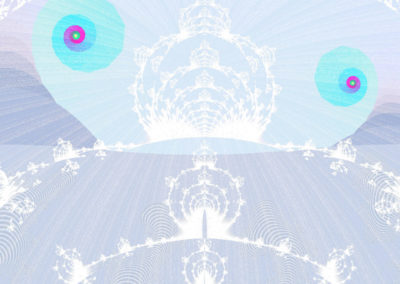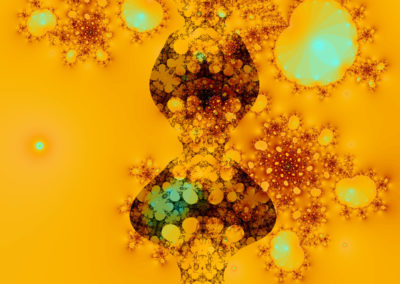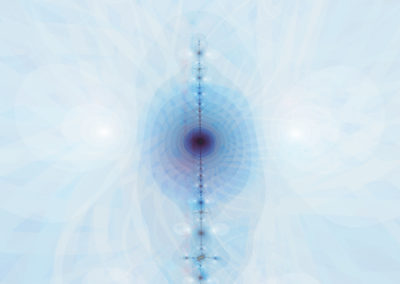Fractal 078 C – Hell’s Gate
Part of BEYOND series – 04 2022
cathedral . fear . frontier . gate . heat . hell . lava . magma
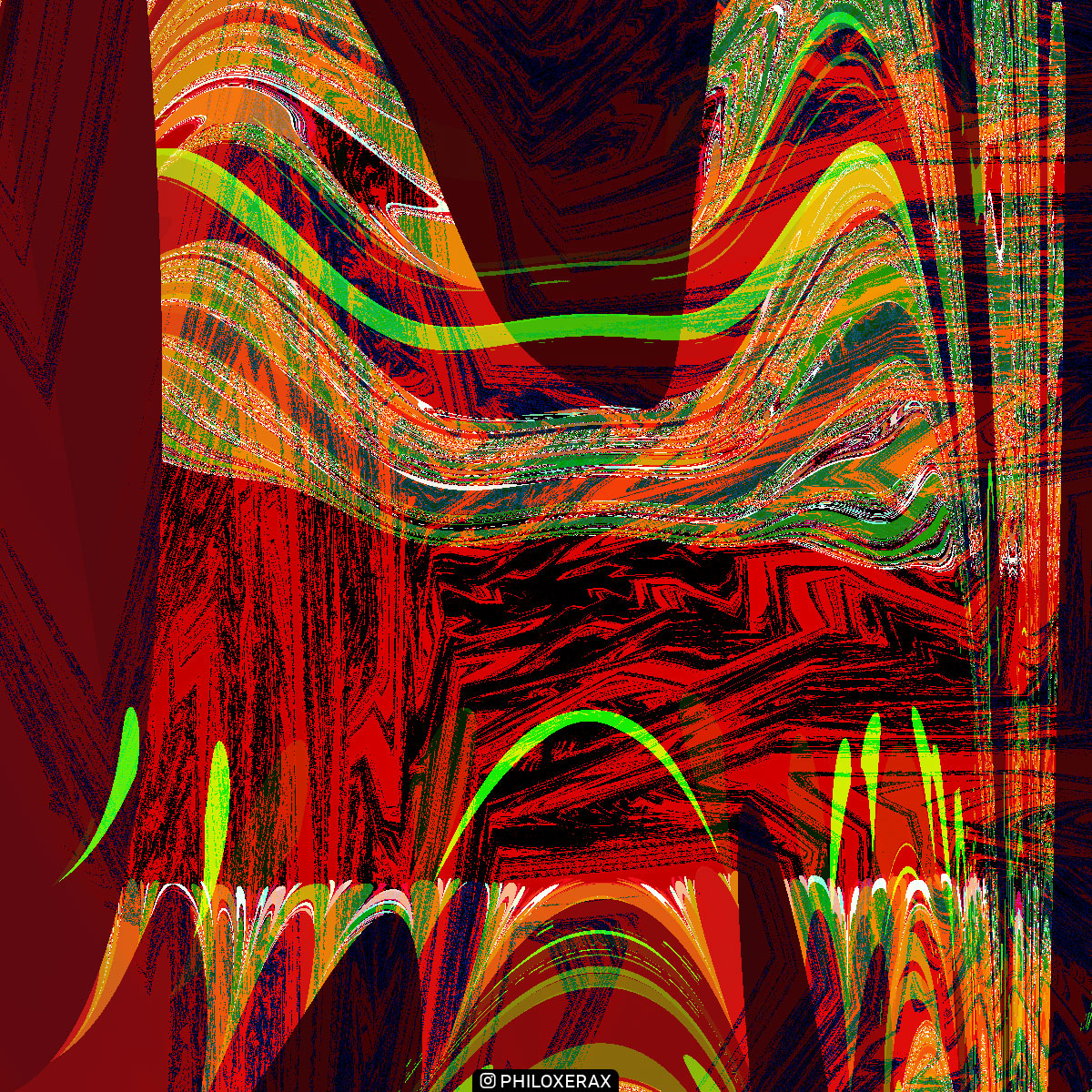
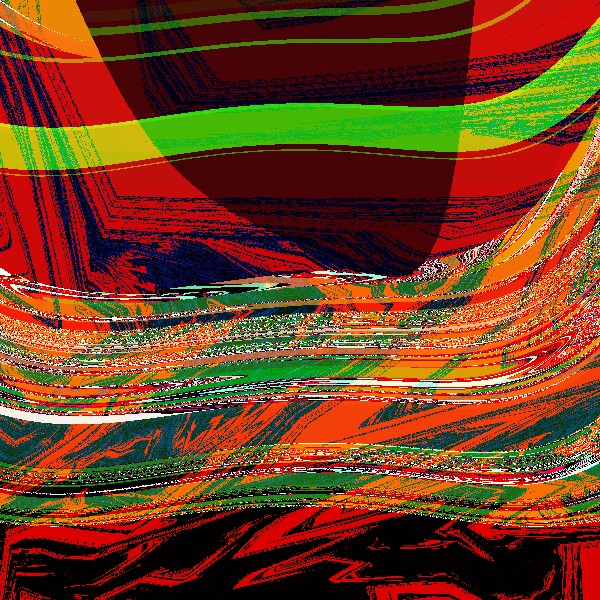
Fractal 078 C – zoom level 1
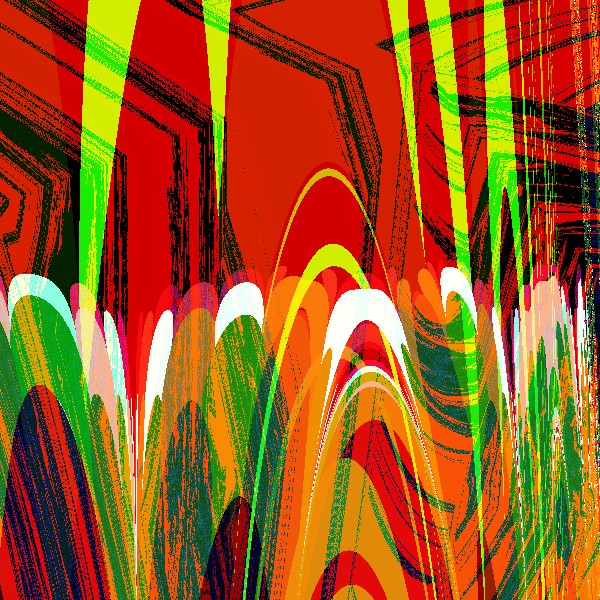
Fractal 078 C – zoom level 2
Data
This digital works is created exclusively from fractals, with 0% AI generated. It can therefore be converted into a set of functions and parameters that can be the basis for the training of an AI.
The mathematical formulas and parameter combinations corresponding to each fractal are presented below. In each case, the numerical characters have been replaced by ■ to prevent unauthorized reproduction. If you are interested in using the full data set to train an AI, please contact Philippe.
Fractal 078 C - Hell’s Gate - Part of BEYOND series - 04.2022
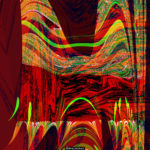
Fractal_■■■_C {
fractal:
title="Fractal_■■■_C" width=■■■■ height=■■■■ layers=■
credits="Philoxerax;■/■/■■■■"
layer:
caption="Layer ■" opacity=■■■ mergemode=lighten
mapping:
center=-■.■■■■■■■■■■■■■/■.■■■■■■■■■■■■ magn=■■■.■■■■■
angle=-■■■.■■■■
formula:
maxiter=■■■ filename="mt.ufm" entry="mt-■■■■■■a-m" p_e■=■.■ p_e■=■.■
p_bailout=■■■■.■ f_fn■=flip f_fn■=ident
inside:
transfer=none
outside:
transfer=linear
gradient:
smooth=yes rotation=-■ index=■■■ color=■ index=■■■ color=■■■■■
index=■■■ color=■ index=■■■ color=■ index=■■■ color=■ index=■■■
color=■ index=■■■ color=■ index=■■■ color=■
opacity:
smooth=no index=■ opacity=■■■
layer:
caption="Background" opacity=■■■ mergemode=overlay
mapping:
center=-■.■■■■■■■■■■■■■/■.■■■■■■■■■■■■■ magn=■■■.■■■■■
angle=-■■.■■■■
formula:
maxiter=■■■ filename="lkm■.ufm"
entry="mixed-up-multiplication-mandelbrot" p_power=■ p_bailout=■■■■
p_shape_type=square p_q■_type=out p_q■_type=out p_q■_type=out
p_q■_type=out p_freq=■ p_amp=■.■ p_nteeth=■ p_rsmall=■.■
p_inrad=■.■■
inside:
transfer=none
outside:
transfer=linear
gradient:
smooth=yes rotation=-■■ index=■■ color=■■■■■■■ index=■■■
color=■■■■■■ index=■■■ color=■■■■■■■ index=-■■ color=■■■■■■■
opacity:
smooth=no index=■ opacity=■■■
layer:
caption="Layer ■" opacity=■■ mergemode=red
mapping:
center=-■.■■■■■■■■■■■■■/■.■■■■■■■■■■■■■ magn=■■■.■■■■■
angle=-■■■.■■■■
formula:
maxiter=■■■ filename="mt.ufm" entry="mt-■■■■■■a-m" p_e■=■.■ p_e■=■.■
p_bailout=■■■■.■ f_fn■=flip f_fn■=ident
inside:
transfer=none solid=■■■■■■■■■■
outside:
transfer=linear
gradient:
smooth=yes rotation=■■■ index=■■■ color=■■■■■■■ index=■■■
color=■■■■■■■ index=■■■ color=■■■■■■■ index=■■■ color=■■■■■■■■
index=■■■ color=■■■■■■■■ index=■■■ color=■■■■■■■ index=■■■
color=■■■■■■■■ index=■■■ color=■■■■■■■■ index=■■■ color=■■■■■
index=■■■ color=■■■■■■■ index=■■■ color=■■■■■■■■
opacity:
smooth=no index=■ opacity=■■■
layer:
caption="Background" opacity=■■■
mapping:
center=-■.■■■■■■■■■■■■■/■.■■■■■■■■■■■■■ magn=■■■.■■■■■
angle=-■■■.■■■■
formula:
maxiter=■■■ filename="mt.ufm" entry="mt-■■■■■■a-m" p_e■=■.■ p_e■=■.■
p_bailout=■■■■.■ f_fn■=flip f_fn■=ident
inside:
transfer=none
outside:
transfer=linear
gradient:
smooth=yes rotation=■■■ index=■■■ color=■■■■■■■ index=■■■
color=■■■■■■■ index=■■■ color=■■■■■■■ index=■■■ color=■■■■■■■
index=■■■ color=■■■■■■ index=■■■ color=■■■■■■■ index=■■■
color=■■■■■■■ index=■■■ color=■■■■■■■■ index=■■■ color=■■■■■■■■
index=■■■ color=■■■■■■■ index=■■■ color=■■■■■■■■
opacity:
smooth=no index=■ opacity=■■■
}
mt-■■■■■■a-m { ; Mark Townsend, Aug ■ ■■■■
init:
z = ■
c = #pixel
loop:
z = @fn■(c■z^@e■) + @fn■(z^@e■) + c
bailout:
|z| < @bailout
default:
title = "■■■■■■a Mset"
param e■
caption = "First exponent"
default = ■.■
endparam
param e■
caption = "Second exponent"
default = ■.■
endparam
func fn■
default = ident()
endfunc
func fn■
default = ident()
endfunc
param bailout
caption = "Bailout value"
default = ■■■■.■
endparam
func fn■
caption = "First Function"
default = ident()
endfunc
func fn■
caption = "Second Function"
default = ident()
endfunc
switch:
type = "mt-■■■■■■a-j"
e■ = e■
e■ = e■
fn■ = fn■
fn■ = fn■
bailout = bailout
c = #pixel
}
mixed-up-multiplication-mandelbrot { ; Kerry Mitchell ■■Nov■■■■
;
; Instead of using regular complex multiplication, this method uses a base
; shape (= unit circle normally). Use the polar angle of z to reach back
; to the base shape and find its coordinates. Then, use the actual and base
; magnitudes to determine a scale factor, and the arc length to determine
; the angle (angle = arc length / base magnitude). From there, the magnitude
; of z^power = scale factor ^ power, and angle of z^power = power ■ angle.
;
$define debug
global:
complex corner[■■]
float pitch_s=■
float pitch_trad=■
float smax=■
float tdegmax[■■]
float twopi=■■#pi
int gi=■
;
; cruciform settings: central square side & four other squares, one
; on each side of central square
;
if(@shape_type=="cruciform")
corner[■]=(■,■)
corner[■]=(■,■)
corner[■]=(■,■)
corner[■]=(■,■)
corner[■]=(-■,■)
corner[■]=(-■,■)
corner[■]=(-■,■)
corner[■]=(-■,-■)
corner[■]=(-■,-■)
corner[■]=(-■,-■)
corner[■■]=(■,-■)
corner[■■]=(■,-■)
corner[■■]=(■,-■)
corner[■■]=(■,■)
;
; rescale so that corner[■] = (■,■)
; find degree measures of corners
;
gi=-■
while(gi<■■)
gi=gi+■
corner[gi]=corner[gi]/■
tdegmax[gi]=(atan■(corner[gi])/#pi■■■■+■■■)%■■■
endwhile
elseif(@shape_type=="triangle")
corner[■]=(■,■)
corner[■]=(-■+flip(sqrt(■)))/■
corner[■]=(-■-flip(sqrt(■)))/■
tdegmax[■]=■
tdegmax[■]=■■■
tdegmax[■]=■■■
tdegmax[■]=■■■
elseif(@shape_type=="star")
corner[■]=(■,■)
corner[■]=@inrad■(■,■)/sqrt(■)
corner[■]=(■,■)
corner[■]=@inrad■(-■,■)/sqrt(■)
corner[■]=(-■,■)
corner[■]=@inrad■(-■,-■)/sqrt(■)
corner[■]=(■,-■)
corner[■]=@inrad■(■,-■)/sqrt(■)
corner[■]=(■,■)
tdegmax[■]=■
tdegmax[■]=■■
tdegmax[■]=■■
tdegmax[■]=■■■
tdegmax[■]=■■■
tdegmax[■]=■■■
tdegmax[■]=■■■
tdegmax[■]=■■■
tdegmax[■]=■■■
endif
;
; gear settings
;
if(@shape_type=="gear")
pitch_trad=twopi/@nteeth
smax=#pi■(■+@rsmall)
pitch_s=smax/@nteeth
endif
init:
complex arccenter=(■,■)
complex c=#pixel
complex compk=(■,■)
complex w=(■,■)
complex z=#pixel
float afac=■
float bfac=■
float cfac=■
float dcrit=■/(■+@rsmall)
float dtooth=■
float h■=■
float k■=■
float k=■
float phi=■
float phimax=■
float r=■
float s=■
float slope=■
float tdeg=■
float third=■/■
float trad=■
float x=■
float xb=■
float x■=■
float y=■
float yb=■
float y■=■
int itooth=■
loop:
;
; decompose z
;
x=real(z), y=imag(z)
;
; square
;
if(@shape_type=="square")
;
; determine arc length from basis shape
;
phimax=■
;
; find scale factor k
;
k=abs(x)
if(abs(y)>k)
k=abs(y)
endif
;
; find standard polar angle
;
trad=atan■(z)
if(trad<■)
trad=trad+■■#pi
endif
tdeg=trad/#pi■■■■
;
; use polar angle to find coordinates of point on base shape
; and base shape arc length
;
if(tdeg<■■) ; upper right side
xb=■, yb=y/k, s=yb
elseif(tdeg<■■■) ; top
xb=x/k, yb=■, s=■-xb
elseif(tdeg<■■■) ; left side
xb=-■, yb=y/k, s=■-yb
elseif(tdeg<■■■) ; bottom
xb=x/k, yb=-■, s=■+xb
else ; lower right side
xb=■, yb=y/k, s=■+yb
endif
phi=s
;
; raise z to power
;
k=k^@power, phi=(@power■phi)%phimax
;
; use phi and k to return new x & y and add c
;
if(phi<■) ; upper right side
xb=■, yb=phi
elseif(phi<■) ; top
xb=■-phi, yb=■
elseif(phi<■) ; left side
xb=-■, yb=■-phi
elseif(phi<■) ; bottom
xb=phi-■, yb=-■
else ; lower right side
xb=■, yb=phi-■
endif
x=xb■k, y=yb■k
z=x+flip(y)+c
;
; triangle
;
elseif(@shape_type=="triangle")
;
; determine arc length from basis shape
;
third=sqrt(■)
phimax=■■third
;
; find standard magnitude and polar angle
;
r=cabs(z)
trad=atan■(z)
tdeg=(trad/#pi■■■■+■■■)%■■■
trad=tdeg/■■■■#pi
;
; use polar angle to find coordinates of point on base shape
; and base shape arc length
;
if(tdeg
